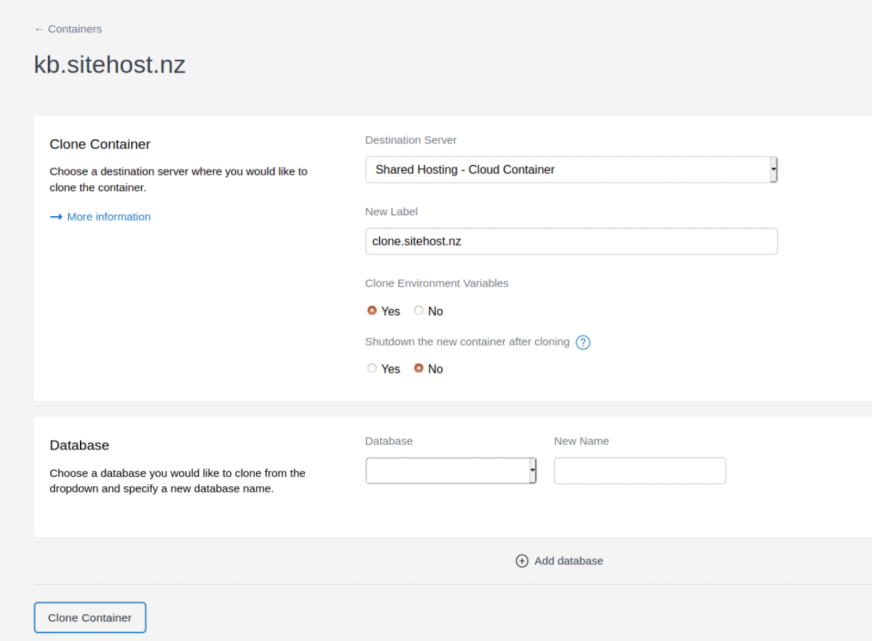New in Cloud Containers: Container Cloning
Now you can easily create a copy of an existing container or synchronise the data between two containers.

If you have a website or application that serves many customers and will require frequent updates, then you probably already know the importance of separating the deployment environments for development, testing, and production. It is good software engineering practice to have a separate, non-production, environment for experimenting in. This ensures you can reliably test new features or plugins without worrying about any disruptions to your customers if any issues arise.
However, creating such environments and keeping them up to date can be a tedious task. That’s why we’ve come up with Container Cloning - a new feature that allows you to easily create a copy of an existing container or synchronise the data between two containers. We handle all the technical complexities involved so that you can focus on work that matters.
You asked, we listened
Our Container Cloning feature was designed with you in mind. We recently have been receiving feedback such as:
Just wondering if there was an easy way to create staging sites of existing containers for development, then an easy way to push them live.
and
One of my favourite features of Plesk is being able to clone a website. It makes it really easy to set up a staging environment.
We heard you
You want to be able to create a new testing or staging container from your existing production container. As well as being able to synchronise the data of an outdated staging container with your production one. And you also want to be able to push changes you make on your staging container to production.
With Container Cloning you can now check those off the list.
Container Cloning
When you are cloning a container, all the contents on the container including the application data, configuration files, cron jobs, and environment variables will be copied to a new container. You are also able to clone databases along the way and create users for them by copying the set of permissions from existing users. In addition to that, you can overwrite an existing container with those contents, with the flexibility of choosing which directories (applications, crontabs and config) or databases to overwrite.
This feature will allow you to achieve a neat workflow, like creating a copy of your production WordPress container, then upgrading the image of the new container to use newer versions of WordPress and PHP. If everything goes well with your testing, you can push the new changes through to the production container by overwriting it.
You are probably wondering whether you can even clone Cloud Containers across different servers? The answer is yes! You can now clone any containers across servers you own, so you can easily keep your production and testing containers on different servers.
It is awesome that I can clone between servers as I did set up one site on the wrong server but couldn't be bothered migrating it across.
Jon Adams, Director of Websites by Jon.
The workflow you require might be different from what being outlined above, but we hope that the Container Cloning feature has got you covered. As always, please get in touch if you have any feedback or suggestions.

